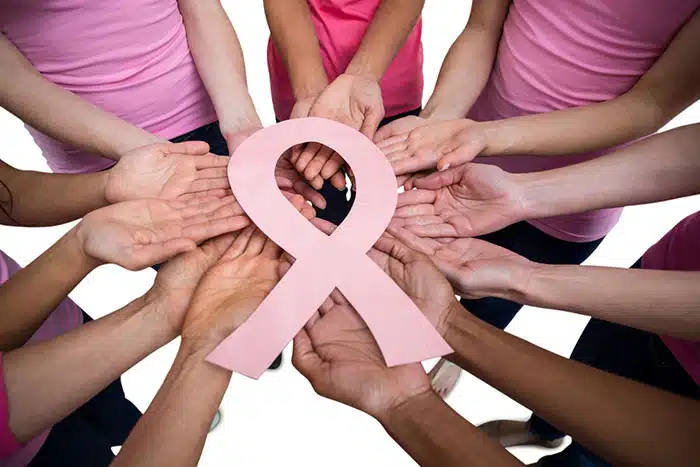Uterine fibroids are hormone-sensitive growths that develop in the uterine wall. And although noncancerous, a common concern for women with fibroids is whether they’re at risk for other hormone-responsive conditions like breast cancer.
A study published in Cancer Causes & Control showed that while having a history of uterine fibroids was unrelated to developing breast cancer overall, this might not be the case for younger women who were diagnosed with fibroids before age 30.1
A first in the field of fibroids and breast cancer research, the study was led by Lauren A. Wise, Sc.D., of Slone Epidemiology Center at Boston University. With a team of researchers, Wise monitored over 57000 women enrolled in the Black Women’s Health Study.
Through self-reported or physician-diagnosed uterine fibroids and recorded incidences of breast cancer, their findings revealed that an early diagnosis of fibroids—before age 30—was associated with an elevated risk for both premenopausal breast cancer and early onset breast cancer.
“An association between tumors of the uterus and the breast via hormonal pathways is biologically plausible,” Dr. Wise and her team write. “Pathologies of the uterus and breast are associated with sex steroid hormones.”
One particular hormone called estradiol—a type of estrogen hormone—has been shown to promote growth in breast ducts and glands. Similarly, fibroid cells have estrogen-regulated hormone receptors, as well as estrogen levels that are higher in comparison to normal uterine tissue.
Progesterone, another sex hormone, encourages cell division in both normal breast tissue and uterine fibroid tissue. The authors speculate that the same hormonal pathways that contribute to fibroid growth may also make a woman more susceptible to estrogen-responsive breast cancers.
Uterine fibroids can be the cause of heavy periods, pelvic pain, and urinary incontinence and are more prevalent in a woman’s 30s and 40s when estrogen levels tend to increase prior to the onset of menopause.
And like fibroids, breast cancer also seems to be age-related. Statistically, a woman at age 20 has a 0.06% risk of developing breast cancer within the next decade.2 At age 30, this rate jumps to 0.4% and nearly quadruples by age 40.2 African American women are at a higher risk for both premenopausal breast cancer and early-diagnosed fibroids.2
Although more studies are needed to confirm the relationship between fibroids and breast cancer, because of its potential link, it’s important for women to talk to their doctors about their own personal risk.
REFERENCES
- Wise L. A., Radin R. G. Rosenberg, L., & Adams-Campbell, L. (2015). History of uterine leiomyomata and incidence of breast cancer. Cancer Causes & Control, 26(10), 1487-1493. doi: 10.1007/s10552-015-0647-8
- Susan G. Komen. (2014). Breast Cancer In Women Younger Than 40. Retrieved September 17, 2016, from http://ww5.komen.org/KomenPerspectives/Breast-Cancer-in-Women-Younger-than-40.html







